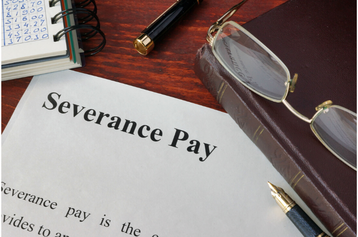Have a Business in New Jersey? Be Aware of S3170: A New Law Effective This Year

Table of contents
- 1.What is S3170?
- 2.What is the Impact of S3170 on New Jersey Businesses?
As an employer, you are most likely familiar with growing federal, state, and local HR regulations that your business needs to keep up with. We updated you on the upcoming changes to paid parental leave laws, harassment prevention and overtime rules in our recent blog. Now, we want to update you on an important new law “S3170” that has been enacted in New Jersey making it the first state to mandate severance for workers if they are part of a mass layoff. This significant new law is effective on July 19 of this year , making New Jersey the first state to impose such a requirement.
What is S3170?
New Jersey employers are subject to the new law S3170 if they have at least 100 employees and are laying off 50 or more employees within a 30-day period. Covered employers must provide their employees with 90-days’ notice and pay their employees one week’s worth of severance for every full year of service. Failure to provide the 90-days’ notice will require the employer to pay their employees an additional four weeks of severance.
Currently, New Jersey employers must consider the federal Worker Adjustment and Retraining Notification (“WARN”) Act and the New Jersey Millville Dallas Airmotive Plant Job Loss Notification Act (“NJ Warn Act”), both of which require 60-days’ notice prior to any mass layoff, plant closing, or transfer or termination of operations. The WARN Act and the NJ Warn Act also require employers to count only full-time employees when calculating the 100-employee coverage threshold and 50-employee layoff minimum. S3170 will expand the required notice period from 60 to 90 days and will also require counting part-time employees when calculating coverage and layoff numbers.
The new law’s severance payment requirement of one week’s pay for each full year of service will be regarded as back pay due to an employee, and hence will be considered to have been earned in full upon the employee’s termination. The rate of severance pay is the average regular rate of compensation received during the employee's last three years of employment with the employer or the final regular rate of compensation paid to the employee, whichever rate is higher. An employer may not request the employee to waive the right to the severance payment unless it is approved by the Commissioner of Labor and Workforce Development or a court. S3170 also has a very broad definition of “employer” that will include just about everyone with employees in New Jersey.
What is the Impact of S3170 on New Jersey Businesses?
The law will make it more difficult and costly for many medium to large employers to perform closures or mass layoffs in New Jersey. Any covered employers considering such actions may wish to initiate their actions in advance of the new law’s effective date of July 19, 2020, so that the current, less stringent law will apply. Employers thinking about establishing or expanding operations in New Jersey should also take the new law into consideration before proceeding.
For additional guidance and questions related to S3170, reach out to our team of TriNet experts
This communication is for informational purposes only; it is not legal, tax or accounting advice; and is not an offer to sell, buy or procure insurance.
This post may contain hyperlinks to websites operated by parties other than TriNet. Such hyperlinks are provided for reference only. TriNet does not control such websites and is not responsible for their content. Inclusion of such hyperlinks on TriNet.com does not necessarily imply any endorsement of the material on such websites or association with their operators.
 |  | |
| Samantha Wellington Senior Vice President, Chief Legal Officer and Secretary, TriNet | Jyan Ferng Corporate Counsel |
Table of contents
- 1.What is S3170?
- 2.What is the Impact of S3170 on New Jersey Businesses?





